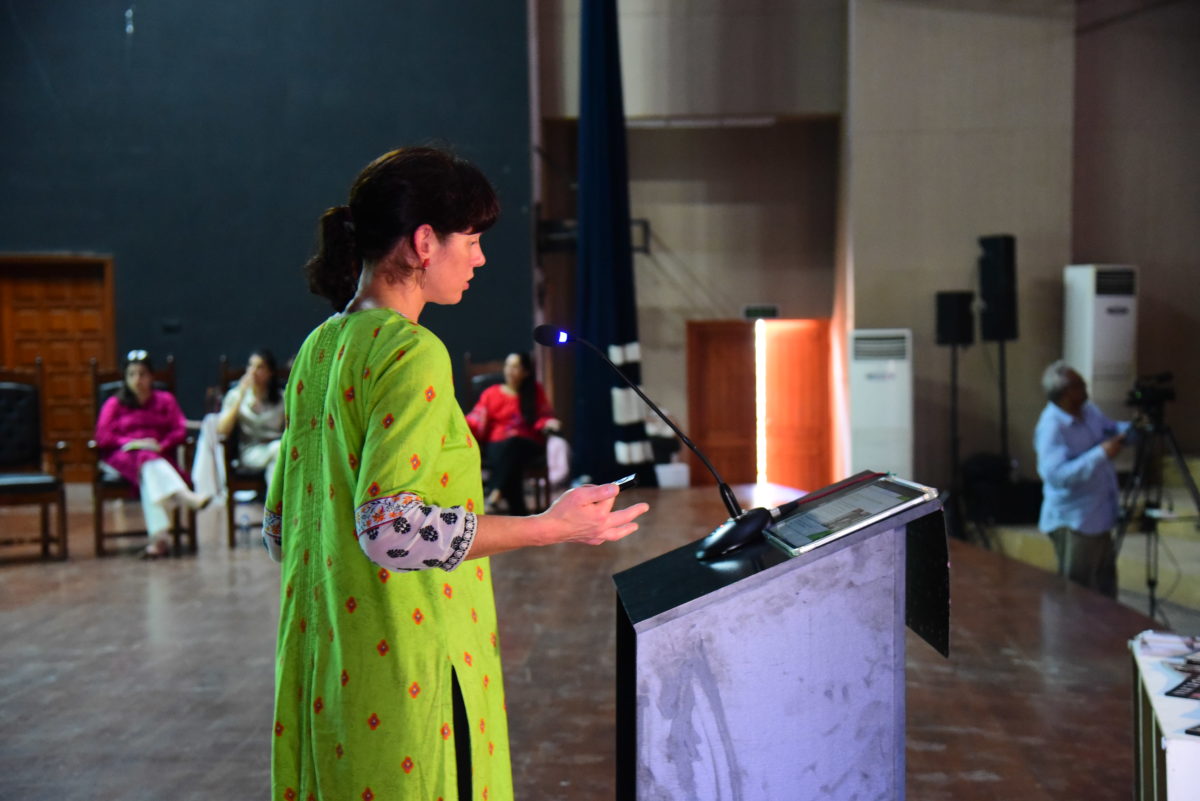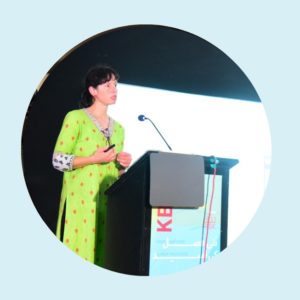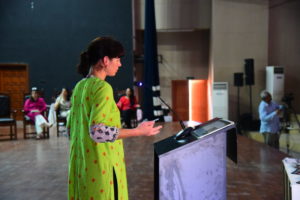Dr Madeline Clements recently returned from trips to India and Pakistan where she co-convened workshops exploring the power of women’s writing to assert individual autonomy and inspire social and cultural change, and investigate challenges faced by women working to conserve landmark literary and art publications and ensure they remain accessible in future.
The aim of the ongoing work has been to foster connections between researchers, practitioners, and creative professionals, to shape a future where women’s contributions to literature and culture are recognised, celebrated, and protected.
In this guest blog she shares insight into her work, which involves collaboration and mutual learning through networking between women who are trying to use their literary agency as a tool for change.
Dr Madeline Clements, Senior Lecturer in English Studies in the University’s School of Arts & Creative Industries, organised a knowledge exchange event at the Karachi Biennale, held in Pakistan, in November towards the end of last year, enabling her Editing Women in the Archives project team to share their work identifying, documenting, and preserving women-edited literary and art magazines and other publications at risk of loss and hear from audiences about their own archival experiences.
She also co-convened an international workshop in partnership with Kerala University in India, for the World Making Words research network – investigating women’s literary agency, activism and enterprise in South Asia – which she co-leads with colleague Dr Rachel Carroll.
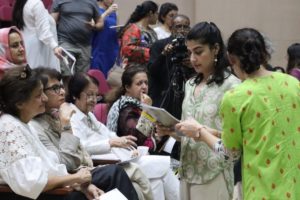 Image courtesy of Karachi Biennale
Image courtesy of Karachi Biennale
What did the work involve?
The Editing Women in the Archives project, funded by the University’s Impact Acceleration Account, and run in partnership with PAWPE (the Pakistan Association of Women Publishers and Editors) of which Dr Clements is a founding member, aims to document and preserve women-edited literary and art magazines at risk of loss, due to dispersal and deterioration.
For many years, these publications, which have reflected women’s lives, explored their rights, and documented their struggles, have been created in contexts where resources are limited and archival efforts not prioritised.
The project gave Hira Azmat, Tazeen Hussain, Mahnoor Jalal, and Veera Rustomji – women with backgrounds in journalism, design, education and in working for organisations involved in archival work – an opportunity to work alongside mentors Mehvash Amin of The Aleph Review and Niilofur Farrukh of Nukta Art to document magazines such as She, published from the 1960s to 2020.
She was an invaluable resource, combining lifestyle content with articles addressing women’s rights, stories, and art reviews. It was one of the many publications that contributed to women’s intellectual and cultural presence during a time of social upheaval.
Work also continues on a digital handbook, an informal guide to the process of conducting archival work on women’s literary and art magazine publications in the contemporary Pakistan context, through which the project team hope to inspiring others to come forward and engage in similar archival work.
The second event, the World Making Words workshop at Kerala University, was part of an ongoing research network funded by the Arts and Humanities Research Council, which explores women’s literary agency, activism, and enterprise in South Asia. It brought together international and local academics and stakeholders to explore the intersection of culture, technology, and gender in literary practice.
Ruchira Gupta, founder of Aapne Aap Women Worldwide, and a leading advocate against sex trafficking, shared how she used storytelling as a tool for activism, specifically in her efforts to change the narrative around sex work and trafficking. Her work underscores the role of narrative in dismantling patriarchal ideologies and empowering marginalized women.
The workshop also included a reading group session on Priya’s Shakti, an augmented reality graphic novel created in collaboration with Aapne Aap. This graphic novel, which blends art with technology, tells the story of Priya, a survivor of a brutal rape, and is part of a larger effort to combat gender-based violence through interactive, digital storytelling.
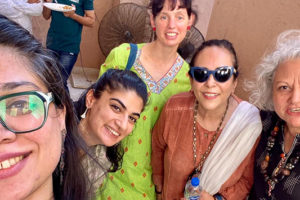 Image courtesy of Hira Azmat of the Editing Women in the Archives project team
Image courtesy of Hira Azmat of the Editing Women in the Archives project team
Building networks for the future
Both events were part of larger efforts intending to support women’s work in producing and preserving vital publications.
By connecting local and international scholars, activists, and practitioners, these workshops contribute to the creation of networks of support and exchange that can continue to foster collaboration across borders. The projects are designed not only to preserve cultural materials but also to build lasting communities of women working together to advance shared goals of advocacy, empowerment, and cultural preservation.
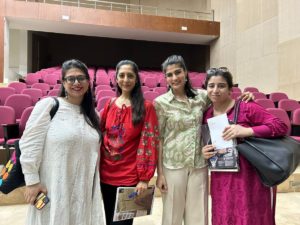 Image courtesy of Mehvash Amin of the Editing Women in the Archives project team
Image courtesy of Mehvash Amin of the Editing Women in the Archives project team
Looking ahead to empower future generations
There are plans to further develop the digital handbook and create an open-access archival platform though Editing Women in the Archives as well as continued networking through future workshops at Bradford’s Cartwright Hall Art Gallery in March, and the Stirling Centre for International Publishing and Book Cultures at the University of Stirling in June, as part of the World Making Words project. These will continue the explore questions central to understanding the significance of women’s literary production and the conditions which have shaped it in South Asia. These initiatives not only protect cultural legacies, but also empower women to take charge of the narrative and build more inclusive futures through the power of storytelling and archival research.

